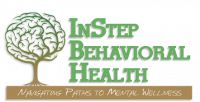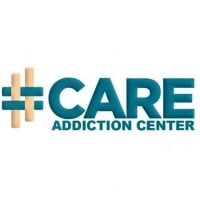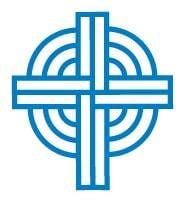Lighthouse Recovery
Drug Rehab Center in Saint Charles, Illinois
Lighthouse Recovery is an outpatient treatment facility in Saint Charles, IL that offers evidence-based programs, individualized care and assistance, including outpatient, aftercare support, dual-diagnosis, and intensive outpatient programs, with highly trained clinicians and doctors, a variety of evidence-based treatment methods, JCAHO and State Licensed, and accepts private health insurance.
About Lighthouse Recovery in Illinois
Lighthouse Recovery is an addiction recovery center located in Saint Charles, IL. The center specializes in the treatment of alcohol and opioid addictions, as well as dual diagnosis. All treatment plans are personalized to meet the needs of the individual, with the ultimate goal of achieving long-term sobriety.
The center offers various levels of care ranging from outpatient to intensive outpatient. Treatment methods and therapies available at the center include cognitive behavioral therapy, dialectical behavioral therapy, family therapy, group therapy, trauma therapy and motivational interviewing. All of these treatments are closely monitored and guided by compassionate, certified therapists. Furthermore, the center is accredited by the Joint Commission on Accreditation of Healthcare Organizations (JCAHO) and licensed by the state of Illinois. The center also accepts private health insurance to assist those in need of financial support for addiction treatment.
Genders
Ages
Modality
Additional
Accreditations
State License

JCAHO
Conditions and Issues Treated
Many people who struggle with opioid addiction need to attend specific programs like methadone , Suboxone or Vivitrol clinics.
These types of programs will provide the patient with legal, prescription medications that can help them overcome their cravings for illegal opioids like heroin or fentanyl . If the patient has a chronic condition like Hepatitis C, they must undergo treatment before they can begin taking these medications.
Dual Diagnosis is a specific relationship between two or more disorders that have the same symptoms and can sometimes be treated together. This is used in the treatment planning process when dealing with drug addicts. Dual diagnosis can be viewed as a chronic medical condition that has comorbid psychiatric disorders.
Although addiction and a mental illness may have separate symptoms that are not easy to detect, they often go hand in hand. Many times, drug abuse is a direct result of the mental illness. In other words, treating the addiction will not resolve all of your issues. Unless you also treat the underlying mental illness, you will not be successful in achieving sobriety.
Levels of Care Offered
This center offers a variety of custom treatment tailored to individual recovery. Currently available are Aftercare Support, Dual-Diagnosis, Intensive Outpatient, Outpatient, with additional therapies available as listed below.
An intensive outpatient program is usually the first phase of addiction treatment. It provides relief for those who are addicted, but are not ready to commit to an inpatient setting. Typically, the patient lives at home and is able to work or go to school. IOPs consist of a daily 3 to 5-hour program, and there is a required number of hours per week. Most patients go to IOP between 20 and 40 hours per week. The patient attends group counseling and individual therapy throughout the duration of treatment. They also meet daily with their therapist to discuss how it’s going and where they are in the recovery process.
The goal here is to teach patients healthy coping skills, such as stress management and identifying thoughts and behaviors that lead to relapse. The implementation of these skills will be useful as the individual transitions into the next phases of treatment.
An outpatient treatment program is set up to help with alcohol or drug addiction, or a co-occurring disorder. The patient must attend the Illinois facility for their therapy and other programs but are able to return home each night. The frequency of mandatory attendance decreases after much of Lighthouse Recovery‘s program is complete.
Aftercare is a term that’s used to refer to any sort of continuing care offered for a drug addict who has voluntarily entered a rehabilitation program. This type of care can be provided in several settings, including outpatient therapy sessions after the addict has completed an inpatient program. There are also 12-step support groups, such as Alcoholics Anonymous, which can provide additional help for addicts trying to stay sober.
Therapies & Programs
Family therapy will also help families realize that the addiction is not their fault. For many years, people blamed themselves for an addict’s behavior and felt that they had done something wrong. This is not the case. Addiction is a disease, and it can strike anyone, even if their life seems fine from the outside. It can bring a lot of shame to a family when they have an addict in their midst, but if everyone is open and honest with each other, then they can help everyone stay in recovery.
Group Therapy is utilized by drug treatment centers like Lighthouse Recovery to provide the recovering drug addict with a platform to talk about their feelings and experiences. It also provides for an opportunity to learn from other addicts who have successfully overcome their addiction.
Group Therapy is employed in lectures, seminars, or discussion groups (the latter two are typically conducted as “therapy groups”). It is recommended that all group members be recovering addicts for this type of therapy to work (though it does not exclude others with lived experience).
Trauma therapy is a clinical process that helps individuals deal with mental stress often caused by traumatic events. It is generally done for children, teenage victims of sexual assault, and war veterans. The therapist helps the person identify, understand and work through the problem. This is done with the help of talking about it in group or one-on-one counseling sessions. Therapists use relaxation, role-playing, art, and music to help the person open up about what is bothering them.
Dialectical Behavior Therapy (DBT) is used by drug treatment centers across the United States to help drug addicts become sober. DBT combines traditional behavioral treatments with elements from DBT, including dialectics, distress tolerance, and interlocking issues. It is commonly used to treat Borderline Personality Disorder (BPD) along with substance abuse disorders. The four DBT modules are mindfulness, interpersonal effectiveness, emotion regulation, and distress tolerance.
Cognitive behavioral therapy is also a popular service for individuals living with addiction. This type of supportive treatment uses both one-on-one counseling and group sessions to teach addicts how to identify thoughts, behaviors and emotions that might increase their risk of relapse.
These professionals can help addicts develop coping skills for managing stress, improving self-esteem and overcoming triggers. They might also use behavioral therapy to help addicts learn how to avoid cravings and warning signs that could lead them back into addiction.
Therapy can be used as a step-down from inpatient treatment or as the primary method of overcoming an addiction. No matter which option is best for the addict, they will teach important emotional coping techniques, which can make it easier for addicts to get through the tough days.
Payment Options Accepted
For specific insurance or payment methods please contact us.
Is your insurance accepted?
Ask an expert, call (888) 674-0062
Additional Details
Specifics, location, and helpful extra information.
Saint Charles, Illinois 60174 Phone Number(630) 940-2468 Meta DetailsUpdated November 25, 2023
Staff Verified
Lighthouse Recovery Patient Reviews
There are no reviews yet. Be the first one to write one.
Saint Charles, Illinois Addiction Information
In 2016, more than 2,350 Illinoisans died from drug overdoses. More than 5,500 deaths annually occur in Illinois due to the abuse of alcohol and other drugs. 7.17% of Illinois residents reported using illicit drugs in the past month (2018). Substance abuse costs the state approximately $3.5 billion every year.
According to the National Institute on Drug Abuse, in 2016, 9.8% of people in Saint Charles aged 12 or older reported using an illicit drug. Cocaine is among the most commonly abused drugs in Saint Charles. Other commonly abused drugs include heroin, marijuana, and methamphetamine. Many drug treatment options are available for someone looking to get sober in Saint Charles. Options include inpatient and outpatient rehabilitation, 12-step programs, and support groups.
Treatment in Nearby Cities
- McHenry, IL (29.4 mi.)
- Palos Hills, IL (29.8 mi.)
- Vienna, IL (312.5 mi.)
- Jerseyville, IL (220.1 mi.)
- Kewanee, IL (95.0 mi.)
Centers near Lighthouse Recovery
The facility name, logo and brand are the property and registered trademarks of Lighthouse Recovery, and are being used for identification and informational purposes only. Use of these names, logos and brands shall not imply endorsement. RehabNow.org is not affiliated with or sponsored by Lighthouse Recovery.





